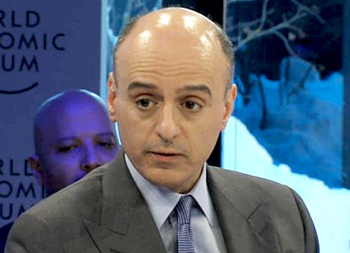Davos, Jan 18: The US has the most to lose from the controversial Justice Against Sponsors of Terrorism Act (JASTA) bill, Saudi Arabia’s foreign minister has said.
 The bill’s limitation of sovereign immunities would leave the US open to being sued by almost every country on the planet, Adel Al-Jubeir warned at the World Economic Forum (WEF) Annual Meeting in Davos.
The bill’s limitation of sovereign immunities would leave the US open to being sued by almost every country on the planet, Adel Al-Jubeir warned at the World Economic Forum (WEF) Annual Meeting in Davos.
“The country that has the most to lose from dilution of sovereign immunities is the US itself. And American officials know this. Because America has the largest footprint in the world, they operate all over the world, they’re fighting wars all over the world,” he told the WEF meeting on Tuesday.
“If that principle is eroded, then the US could be sued in virtually every country in the world.”
Al-Jubeir, answering a question posed by Arab News, said that he hoped Congress would see sense regarding JASTA.
“When you dilute sovereign immunities, you turn the international order into the law of the jungle. For example, allowing a country to use your airspace in warfare could subject you to a lawsuit. Using drones could subject you to lawsuit,” he said.
“Our hope is that wisdom will prevail and the Congress will do the right thing.”
The minister was addressing the 47th WEF in Davos, the annual meeting of global movers and shakers. The meeting concludes Friday — the same day Donald Trump is set to be sworn in as US president.
Al-Jubeir said he expects the US to go through “a period of engagement with the world” under the new administration.
He would like to see “more American engagement in the world, more American engagement in the region, rebuilding of relationships with allies, a serious effort to destroy ISIS, a serious effort to contain Iran. And I think the change will happen.”
The minister also used the Davos platform to express his concern over Iran’s activities in the Middle East region, saying that Tehran should be held responsible for its “support of terrorism”.
“Iran has been single-handedly the most important supporter of terrorism in the region,” Al-Jubeir said. “I find it interesting that virtually every country in the world has been attacked by Al-Qaeda and Daesh, except Iran. Why?”
There are “a number of countries including Saudi Arabia” that have concerns about the nuclear deal between Iran and Western powers, the minister added.
“Do people trust the Iranian regime in not trying to acquire a nuclear weapon? I don’t think they do,” he said. “The fact that it has gotten away with so much over so many years is an issue of great concern.”
Earlier on Tuesday, Chinese President Xi Jinping gave an address to the forum in Davos, in which he issued a stark warning against protectionism and promoted globalization.
In what has been interpreted by some as a message to the new US president, Xi told the Annual Meeting in Davos: “No one will emerge as a winner in a trade war.”
Al-Jubeir said China’s rise on the world stage should be welcomed, not seen as a threat. “The rise of China should be a source of stability rather than conflict,” he said.






Comments
Add new comment